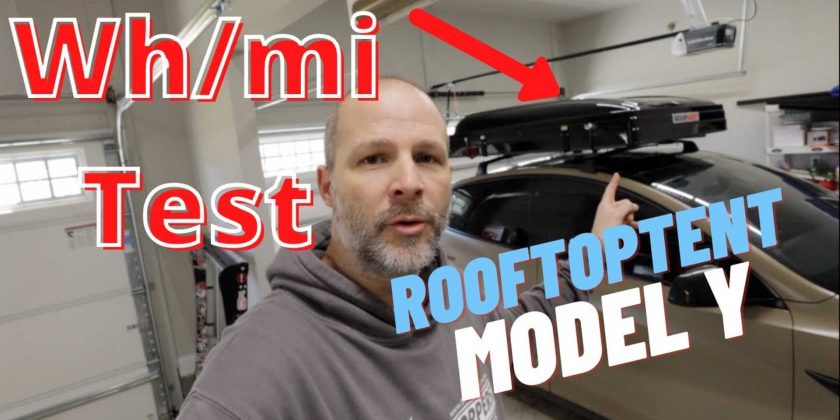This particular tent is from a company called RoofNest and it will definitely reduce the Model Y’s range somewhat.
Roof tents are becoming increasingly popular as a way to go camping on weekends without having to haul a heavy caravan (also known as a camper or camper trailer) and potentially hold up traffic behind you. The companies that make them have become remarkably good at folding the tents away when not in use, but, even so, carrying one on the roof of your vehicle will incur an efficiency and range penalty.
This is also true when it comes to roof racks or storage boxes, although they are not quite as big as a full-width tent, so they don’t affect the vehicle’s aero quite as significantly. But by how much does such a tent reduce an electric vehicle’s range? Well, that’s what i1Tesla set out to find out by driving his Tesla Model Y with a RoofNest Condor tent stowed away on top of the vehicle.
He proceeded to perform a 70 mph range test with the tent on and then he did another test without it the very next day. The result is predictable: the Model Y is less efficient with the tent on – 395 Wh/mile versus 337 Wh/mile without the tent (power usage went up by 17 percent). For the exact same trip, the vehicle used 17 kWh with the tent on and 15 kWh without it.
However, as the video’s host points out, this wasn’t really a scientific test and he also pointed out that it was less windy outside on the second day, when he performed the range test sans tent. The main takeaway is the idea of actually going camping in a Model Y with a tent like this, although if you check out RoofNest’s site, you’ll see that a Condor like the one in the video costs $3,095 (you may very well find a caravan/camper for less).
Related video:
Source:i1Tesla / YouTube
Source: Read Full Article
